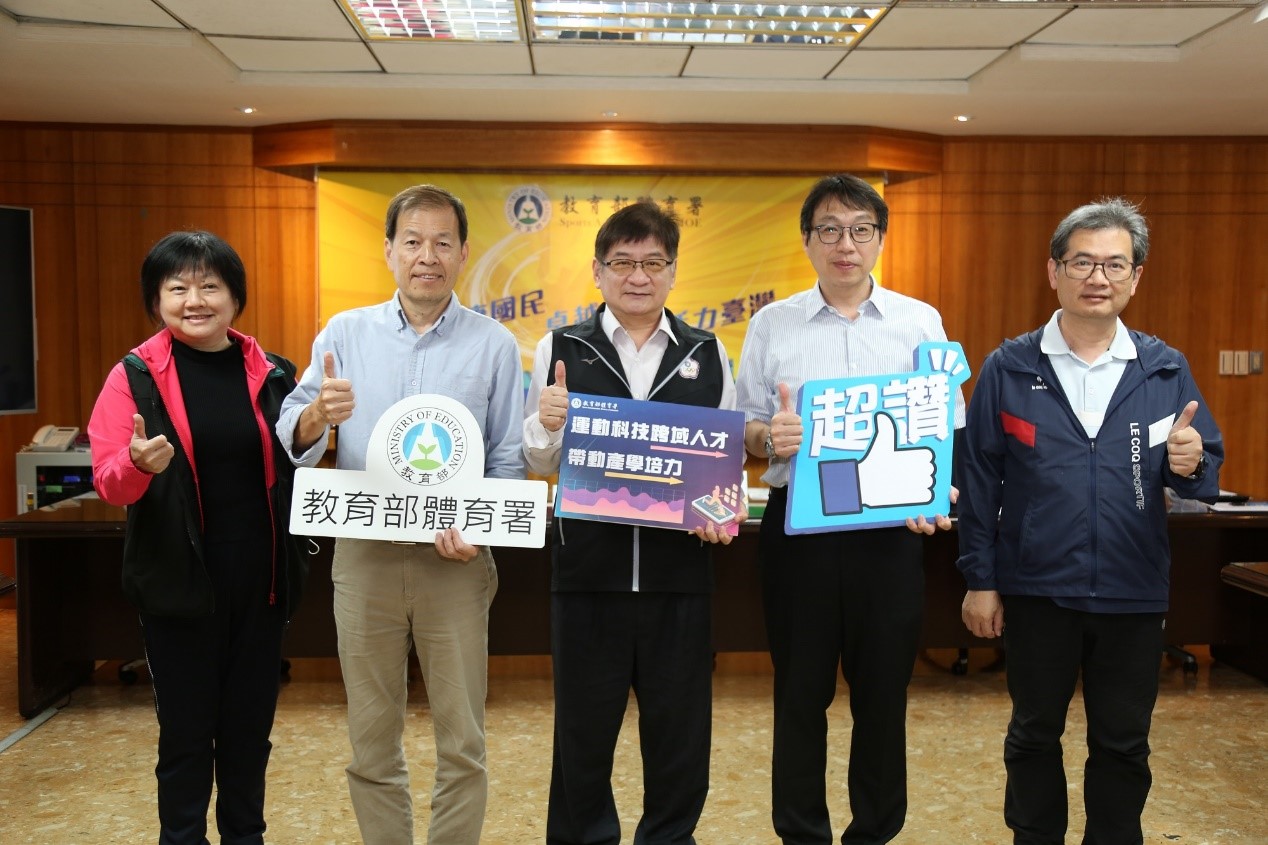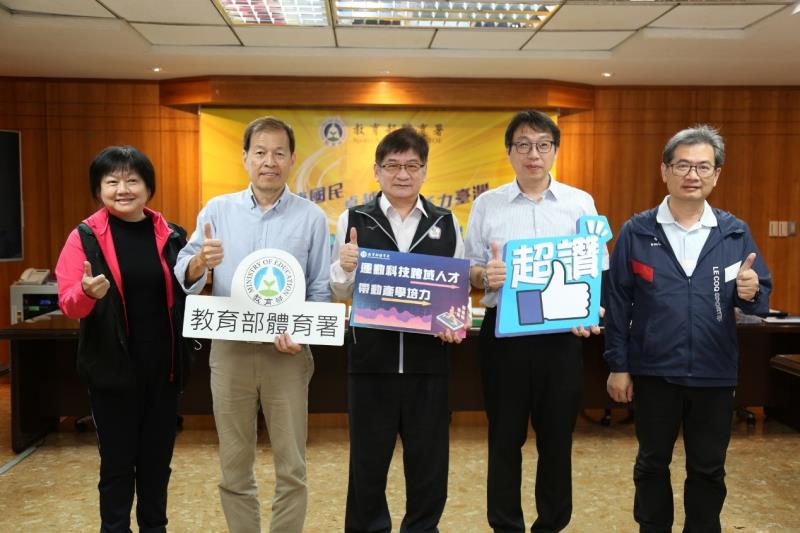Sports Technology Interdisciplinary Talent Drives Industrial and Academic Empowerment

Given the significant potential and importance of the sports technology industry, the Sports Administration (SA) is actively working to cultivate interdisciplinary sports technology talent. The SA gathers and analyzes course design examples from international universities to create demonstration venues and teaching materials. It collaborates with National Taiwan Sport University, National Tsing Hua University, and National Cheng Kung University to further develop interdisciplinary courses and practical teaching areas. To stay current with global development and industry trends, the SA utilizes a rolling adjustment mechanism, ensuring the cultivation of the interdisciplinary talent required by the industry.
On November 30, 2021, the Technology Council Office of the Executive Yuan, now the Science and Technology Office of the National Science & Technology Council, held a National Sports X Technology Strategy Review Board (SRB) Meeting. It launched the "Sports and Technology Action Plan: Sports Everywhere (2022-2026)" to enhance public health, improve quality of life, and advance industrial development through inter-agency collaboration.
In order to implement the interdisciplinary core capabilities needed for the practical needs and cultivate future talent for the sports technology industry, this project has enlisted Professor Shiang Tzyy-Yuang from National Taiwan Normal University to lead an interdisciplinary team. The project combines resources from National Taiwan Sport University, National Tsing Hua University, and National Cheng Kung University, leveraging their expertise in sports, science and technology, respectively. The collaboration has resulted in over 34 interdisciplinary courses, engaging more than 700 students. Additionally, to enhance practical skills and strengthen exchange opportunities among industry, government, academia and research sectors, over 40 activities including studies, workshops, camps, forums and partnerships with sports associations and corporate leagues have been organized. This initiative also includes a talent cultivation base to enhance the educational environment and add value to practical experiences.
In addition, to enhance sports technology courses, schools refer to QS World University Rankings and Times Rankings, using "international benchmark universities" as models to design their programs. This approach helps tailor diverse courses to specific expertise, preparing students with necessary skills for the sports technology industry. Additionally, tracking graduates' employment outcomes ensures these courses effectively nurture industry talent.
In terms of achievements, National Taiwan Sport University has set up an intelligent training and sports data center that teaches students to analyze sports data and utilizes generative AI for sports communication, fostering innovative talent. National Tsinghua University has developed lightweight motion capture technology and portable equipment for hands-on and thematic training in sports. Meanwhile, National Cheng Kung University has built a smart gymnasium equipped with multi-angle cameras and technology-enhanced live streaming capabilities. This facility serves multiple purposes: training, teaching, research and development, and broadcasting sports events, making it an ideal environment for nurturing talents in sports science and technology.
The SA reports that the "Sports and Technology Action Plan: Sports Everywhere" is now in its third year, continuing partnerships with universities. The plan focuses on three strategies: creating innovative modular teaching materials, enhancing cross-sector exchange between industry, academia and research, also aligning with vocational training. These efforts aim to integrate resources across schools and spread results horizontally to fill talent gaps in industry R&D and innovation, ultimately boosting Taiwan's sports industry development.

